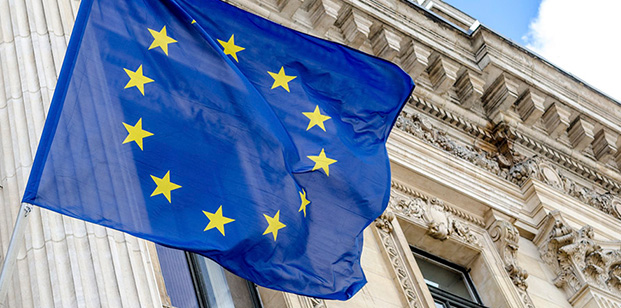December 2017
European equity markets generally posted subdued performance during December; over 2017 as a whole, however, returns were strong. Brexit discussions are moving on to the next phase, which will include negotiations on trade, transition arrangements, and the structure of the future relationship between the UK and EU.
- The EU and Japan reached agreement on a significant free trade deal
- The inflationary backdrop remained lacklustre
- Economic activity in the eurozone accelerated to reach its highest level since February 2011
To view the series of market updates through December, click here
European equity markets generally posted subdued performance during December; over 2017 as a whole, however, returns were strong. Over December, the Dax Index fell by 0.8% while the CAC 40 Index dropped by 1.1%; meanwhile, over 2017, the benchmark German and French indices rose by 12.5% and 9.3% respectively.
“The ECB upgraded its forecasts for economic growth in the eurozone”
The European Union (EU) and Japan reached agreement on a free trade deal that will create the largest bilateral trade agreement ever negotiated by the EU. The Economic Partnership Agreement will remove most of the €1 billion-worth of duties paid each year by European companies exporting to Japan. The Economic Partnership Agreement will create an economic zone comprising 600 million people and around 40% of global GDP.
Economic activity in the eurozone accelerated to reach its highest level since February 2011, according to IHS Markit, underpinned by intensifying growth in Germany and France. Manufacturing growth rose to record levels and new orders in the sector rose to their highest level since April 2000. Although inflation in the euro area remains subdued, sustained strength in the region’s rate of economic growth is likely to provide the European Central Bank (ECB) with fresh impetus to continue scaling back its stimulus measures.
The ECB upgraded its forecasts for economic growth in the eurozone, raising its forecast for growth in the euro area from 2.2% to 2.4% this year, from 1.8% to 2.3% next year, and from 1.7% to 1.9% in 2019. Expectations for inflation, however, remain subdued; ECB President Mario Draghi warned that domestic pricing pressures remain “muted… and have yet to show convincing signs of a sustained upward trend”.
In response to controversial and sweeping tax reforms introduced by US President Donald Trump, finance ministers from leading European countries – including France, Germany and the UK – wrote to US Treasury Secretary Steve Mnuchin, warning that the reforms risked “having a major distortive impact on international trade”.
Brexit discussions are moving on to the next phase, which will include negotiations on trade, transition arrangements, and the structure of the future relationship between the UK and EU. During the month, EU leaders announced that the period of transition following Brexit should not continue beyond 31 December 2020. The EU also warned that the UK will have to continue to comply with its guidelines during the transition period and that there can be no “cherry picking”.
A version of this and other market briefings are available to use in our newsletter builder feature. Click here









